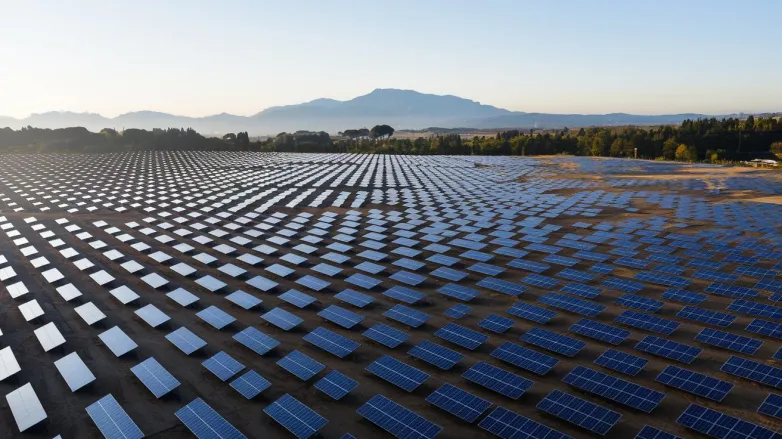JERA Partners with JR East for Offsite Solar Power
Jan 17, 2025 02:27 PM ET
- JERA Co Inc partners with JR East for a groundbreaking solar power deal, paving the way for sustainable energy and innovative food waste recycling in the railway sector.

JERA Co Inc has sealed an offsite solar power purchase agreement (PPA) with East Japan Railway Company (JR East) to supply renewable energy for station buildings. JERA Cross Inc will aggregate solar power generated from its plants, totaling 2 MW, along with its environmental benefits, for distribution through East Japan Railway Trading to the JR East Group.
In addition, J Bio Food Recycle Corp will utilize food waste from JR East's Atre and Lumine facilities to generate and supply electricity. The contract is set to commence on February 1, 2025, marking a significant step towards sustainable energy solutions for the railway sector.
How will JERA and JR East's solar PPA impact renewable energy in the railway sector?
- Enhanced Sustainability Practices: The PPA between JERA and JR East underscores a commitment to sustainability within the railway sector, demonstrating how large organizations can lead by example in adopting renewable energy sources.
- Reduction in Carbon Footprint: By integrating solar power into their operations, JR East will significantly reduce its reliance on fossil fuels, contributing to lower carbon emissions and aligning with national goals for carbon neutrality.
- Energy Security: Utilizing locally generated solar energy increases energy security for JR East, reducing vulnerabilities related to supply chain disruptions or fluctuations in fossil fuel markets.
- Financial Benefits: The agreement may lead to cost savings in energy expenditures for JR East, as renewable energy sources can offer more stable pricing compared to traditional energy markets subject to volatility.
- Innovative Waste Management: The collaboration with J Bio Food Recycle Corp for converting food waste into electricity adds another layer of sustainability, addressing waste management challenges while generating additional renewable energy.
- Potential for Increased Capacity: The 2 MW from solar generation is just the start; this partnership may open avenues for further investments in solar energy infrastructure, promoting larger capacity installations in the future.
- Encouragement of Similar Partnerships: This collaboration sets a precedent that could inspire other railway companies and transportation sectors to pursue renewable energy agreements, accelerating the shift toward sustainable practices nationwide.
- Public Perception and Support: A commitment to renewable energy can bolster JR East's reputation among environmentally conscious consumers, potentially increasing customer loyalty and support for the brand.
- Policy Alignment: The collaboration aligns with Japan's broader energy policies aimed at increasing the share of renewable energy in the overall energy mix, thus supporting governmental initiatives.
- Innovation in Transportation: The project may catalyze further innovation within the railway industry, promoting the adoption of additional renewable technologies and energy-efficient systems to enhance overall operational performance.
- Carbon Offsetting and Environmental Credits: By participating in this renewable energy initiative, JR East may also be eligible for environmental credits or carbon offsetting programs, providing further financial incentives and enhancing their corporate sustainability profile.
Also read

